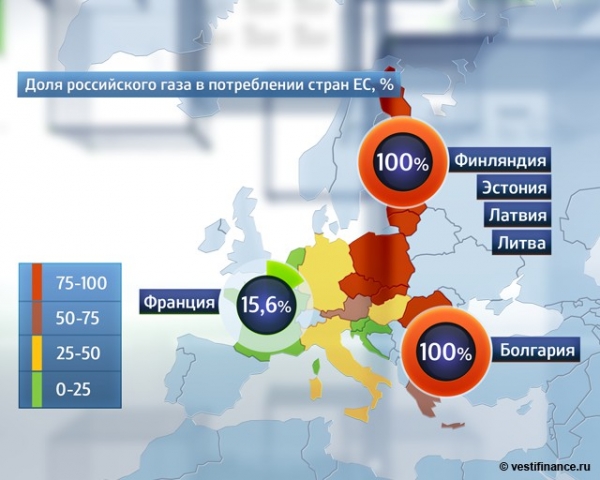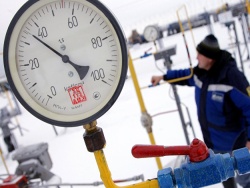The Prime Minister of Italy Matteo Renzi times quite sharply spoke about the European economic policy of German Chancellor Angela Merkel.

Flexibility, Association of banks and the management of the Eurozone are the main issues on which there is a disagreement between leaders of the two countries.
Renzi said that Europe must move away from austerity and focus on economic growth. But Merkel continues to insist that budget discipline is the key to recovery.
Among the tools used by Renzi to push through its position, the issue of the construction of the pipeline “Nord stream-2”, through which Russian gas must be supplied from Russia under the Baltic sea to Germany. This question is increasingly attracting the attention of journalists from different countries.
Italy is opposed to this project, while Moscow and Berlin to support its construction. However, objections to Renzi directed more at Germany than to Russia.
The hidden ambitions of Italy
From the point of view of the Italian Prime Minister, Nord stream-2″ is incompatible with the norms of the EU Third energy package, which regulates the energy market and competition in Europe.
The new pipeline is contrary to the rules established in Brussels, however, the Italian criticism of the project is also linked with the national interests of the country.
“Italy wants to be a great European gas hub, so it is afraid that due to the construction of the Nord stream-2″ Germany will intercept this role in Italy,” says Nicolo Rossetto, an expert on energy issues at the Institute for international political studies (Institute for International Political Studies, ISPI).
If to speak about import of gas in Italy is very extensive system. The authorities are investing a lot of money to build entry points for gas to be imported from Russia, the Netherlands, Algeria and Libya, and then be forwarded on to Central and Northern Europe.
Among these interconnectors hub in Tarvisio, which receives Russian gas via the pipeline that goes through Ukraine and increased its capacity and its strategic role over the past few years.
This was associated with a reduction in supply from Libya, where a civil war, and Algeria, which need to improve infrastructure.
In the period from 2013 to 2016. Italy imported through a hub in Tarvisio from 26 billion to 30 billion cubic meters of gas per year from the whole imports 55-61 billion cubic meters per year over the same period.
As the Nord stream and Nord stream-2″ reduce the role of Ukraine as a transit country, which is traditionally connected Russia with the European consumers, Italy is considering these projects as the factors that prevent the country to become a European gas hub.
Italy and the V4 countries
Italy and the V4 countries (Hungary, Poland, Slovakia, Czech Republic) share similar views on Nord stream-2″.
These countries oppose the project, which, in their opinion, does not conform to the Third energy package.
In mid-December 2015 the V4 countries expressed their common position on the draft, demanding from the European Commission ensure full compliance of new infrastructure with EU legislation.
These countries in their criticism of the project point to its uselessness.
“Given the current demand for natural gas in Europe, which declined during the economic crisis, there is no need to build new infrastructure in addition to the already existing” — emphasizes Rossetto.
Nevertheless, the Russian “Gazprom” noted that the construction of the Nord stream-2″ is necessary due to the fact that in Northern Europe reduced production of natural gas.
As in the case of Italy, the Nord stream-2″ is contrary to the national interests of the V4 countries.
Hungary and Slovakia, for example, don’t want to lose the benefits that are associated with gas pipelines passing through the territory of Ukraine.
And for Warsaw “and the stream-2 is a powerful attack on the strategic role of Ukraine, which makes Central Europe dependent on Russia.
If we talk about Italy, its objection is more focused on Germany and not on Russia.
In this regard, Renzi also expresses criticism of the Chancellor that doing business with Moscow at the moment isn’t fair. Renzi notes that this is due to the fact that many European countries experienced a negative effect from sanctions against Russia, which negatively affected the agricultural sector of Europe.
In other words, Italy is considering the Baltic gas pipeline as an opportunity for Germany to bypass the European embargo, which Italy would like to cancel.
Italian business community is putting pressure on this issue, complaining of the decline in exports to Russia (compared to 2013 to 10 billion euros was lost in the volume of trade between Russia and Italy.
Despite the fact that Renzi realizes that this is impossible to achieve now, he still asks Brussels to conduct a serious political debate on this issue.
The position of Italy can support two countries – Hungary and Slovakia, who are not sure about the situation in which a business that does not have the opportunity to work with Moscow.
However, do not agree with Italy to Poland, which is ready to accept the economic consequences of the embargo against Russia, just to block any influence of Russia.
In Italy perceive Russia as an important strategic partner, not a strategic threat.
If you add up all the above, we can note the fact that Italy and the V4 countries are United in their position towards the project “Northern stream-2” on technical and legal levels, but if we talk about the political situation, which affected Ukraine, there are some differences.
Pros and cons: on whose side Italy?
Analysts believe that Italy wants to block the Nord stream-2″ in retaliation for the economic consequences that she faced in connection with the cancellation of the “South stream”, which was supposed to transport Russian gas to Vienna via the Black sea and the Balkans.
Eni, the largest Italian energy company, was one of the partners of the consortium created for the construction of the pipeline.
After the cancellation of this project, many deals were canceled, among them is the contracts Saipem, a company which is owned by Eni and which specializiruetsya on building infrastructure. At the moment the company is going through a serious financial crisis.
The Italian press reported on a telephone conversation with Renzi with Putin where the Russian President proposed the Saipem some contracts in the framework of the project “Northern stream-2” as some form of compensation.
In General, Italy has constantly stressed that the Nord stream-2″ contradicts the Third energy package and, therefore, a common European good, however, it is clear that the country is primarily pursuing their national interests.
Rome supported the project “South stream”, which was contrary to the Third energy package.
At the same time, the country is currently involved in the development of the TRANS-Atlantic pipeline (TAP) which will supply gas from Azerbaijan to Italy and included Brussels on diversification of gas imports to Europe.
In General, Italy continues to support the Brussels ‘ policies on the diversification of gas imports and the creation of a European energy market. While Renzi does not forget about national interests.
So Renzi disagrees with the leaders of other countries on a number of issues such as the crisis of migrants or the Nord stream-2″. At the same time Italy and Germany, a similar approach to Russia, despite the fact that Renzi does not support sanctions, unlike Merkel.
If we talk about Germany, Merkel sees no contradiction between an embargo against Russia and the construction of the Nord stream-2″, as she looks at this project as a private project, not as something promoted by the government of Germany.
Nord stream-2″ and the Third energy package
Nord stream-2″ as such does not contradict the norms of the Third energy package, says Deputy Director General of the national energy Institute Alexander Frolov. — Rather disputes regarding gas transportation infrastructure, which will meet the gas in the EU”.
The current Nord stream comes under the Baltic sea to the German city of Greiswald, where the gas enters the gas pipelines OPAL and NEL.
NEL received an exception from the rules of the Third energy package, and OPAL – no, the analyst.
Poet 18 billion cubic meters of 36 billion cubic meters of it reserved for some other suppliers who could use these gas transport capacity.
In practice, the analyst believes that no other providers in our region, and they can not be:
“Although, as I understand it, due to the development of exchange trading with gas to Gazprom from 2015, could circumvent these restrictions as part of supply in the “Nord stream” blue fuel is bought on the stock exchange and formally is no longer Gazprom”.
Frolov also believes that Italy ought to actively lobby for South stream, then there would be the current situation:
“You have to understand that Gazprom and its European partners are forced to build alternative gas transportation routes, as technical and political reliability (or rather lack of) of the Ukrainian corridor has no one in any doubt. Nord stream, South stream and other projects is not a whim but a necessity”.
Today, Russia and the European business cheaper and easier to build a new pipeline than to wait for the repair and modernization of the Ukrainian gas transport system, says the analyst. If the “South stream” had been realized, Italy would be a powerful gas hub, he said.
“On the other hand, if Italy did not have enough political will and influence to defend their interests during the implementation of the “South stream”, which may be her chance to confront the “Nord stream-2? — he considers.







